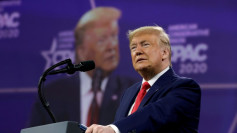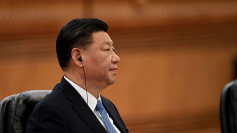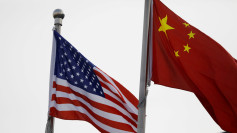China has lifted its unofficial ban on Boeing Co. aircraft deliveries following a breakthrough agreement between Washington and Beijing to temporarily roll back reciprocal tariffs by 115% over a 90-day negotiation period, Bloomberg News reported Tuesday, citing sources familiar with the matter.
Officials in Beijing have begun notifying domestic airlines and government agencies that they may resume accepting deliveries of U.S.-manufactured planes. Boeing, which had previously repatriated at least three aircraft from its China delivery center last month, had been actively seeking buyers for potentially dozens of jets caught in the crossfire of the U.S.-China trade dispute.
The easing of tensions follows weekend talks in Geneva, where the two governments agreed to a temporary suspension of steep import duties that had hobbled several industries, including aerospace. Boeing declined to comment on the reported policy shift. China's Civil Aviation Administration and major domestic carriers also did not respond to Reuters' requests for comment.
Chinese airlines had paused acceptance of new Boeing aircraft amid uncertainty over tariffs imposed by the Trump administration, which Beijing said had severely impacted both Boeing and Chinese carriers. While no formal ban was ever publicly confirmed, industry executives said the lack of deliveries functioned as a de facto embargo.
China, which accounts for approximately 10% of Boeing's commercial aircraft backlog, remains a critical growth market for the U.S. planemaker. During Boeing's first-quarter earnings call, executives disclosed plans to deliver 50 jets to Chinese customers in 2025, with 41 already in production or pre-built.
Of those, Boeing expects Chinese airlines to accept 25 of the 30 remaining 737 MAX aircraft built before 2023 that had not yet been delivered. At least four 777 freighters are also in production for Chinese operators, according to Aviation Flights Group data and a source familiar with the matter.
While Boeing previously indicated that other carriers had expressed interest in the idle aircraft, the company was reluctant to reassign them due to customization for Chinese buyers-particularly in cabin seating, which had already been selected and purchased.






